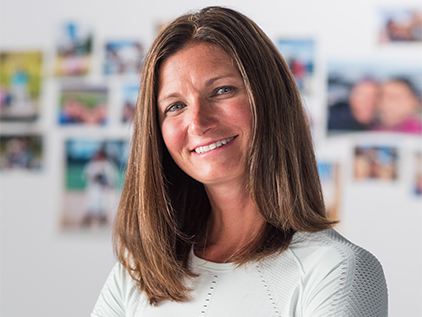- Home
- Outreach & Prevention
- Cancer Awareness
- Breast Cancer Awareness
Cancer Awareness
Breast Cancer Awareness
In 2023, an estimated 297,790 women will be diagnosed with breast cancer, according to the National Cancer Institute. For those who are diagnosed, early detection provides the best outcomes and saves lives.
With the right technology and the right imaging experts, breast cancer is detectable even at its earliest stage, when it’s 99% curable. That’s why we encourage you to take an active role in your breast health and make time for your annual mammogram.

Schedule your mammogram online
We find early-stage breast cancer at a rate that exceeds the national benchmark.
Use these tools to raise and gain breast self-awareness:
Breast cancer facts
Breast Cancer Research News

Advocating for awareness
Mila Ellsworth is a fierce competitor. But in 2015, Mila faced an opponent that would test her in ways she never thought possible.
Mila's story
Breast cancer lifestyle risk factors
Lifestyle factors that may increase your chances of developing breast cancer include:
- Never having children
- Giving birth for the first time after age 35
- Use of oral contraceptives
- Alcohol consumption
- Being overweight or obese
- Lack of physical activity
- Smoking
Our breast cancer research
The University of Kansas Cancer Center seeks to accelerate cancer prevention, discovery and care to save and improve lives with leading-edge, interdisciplinary cancer research.
Learn more about some of our latest breast cancer-related research:
Deepening Our Understanding of Triple-Negative Breast Cancer
Priyanka Sharma, MD, an oncologist at The University of Kansas Cancer Center, is investigating more personalized treatments for triple-negative breast cancer.
Schedule your mammogram.
We find early-stage breast cancer at a rate that exceeds the national benchmark. Schedule your mammogram online today or call 913-588-1227.